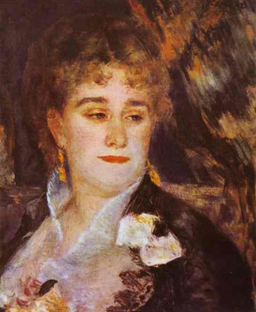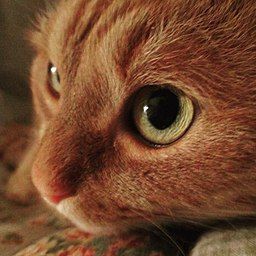
A friend of Lark’s has taken her on a little trip this weekend. Lark has been looking forward to the get-away for months, with childlike excitement and a pall of anxiety. Among other anticipatory measures, we’ve spent time strategizing about who could come look after Kit-Kat, the orange tiger cat she loves more than anything in the world; her security symbol, beloved companion, object of all sorts of projection.
Most of her friends would be willing to come, but she isn’t willing to ask them because that would mean letting them into her apartment, which is full of clutter.
Clutter as in stacks of books, papers, art supplies, clothes, Dollar Store tchotchkes, cans of food from the local pantry, gifts for friends, DVDs borrowed from the library, cards for people at church, as well as bags of bags, large quantities of toilet paper and paper towels, cleaning supplies, cat food, old towels, deodorizers, kitty litter, fake plants, notes to herself, and spiritual reminders.
Lark thinks that most people, even the ones who love her, would be shocked and horrified to see her place, would think she is “weird, sick, or disgusting,” and would drop her like a hot potato. I think she’s probably right that many people would be shocked, and feel bad for her, and think that she isn’t managing too well. But I also think that a lot of people, like me, would like to help her with Kit-Kat.
Many of us have too much stuff, just not as much “too much” as Lark does. I don’t have the attachment to my stuff that she has to hers. But then, I do not have a history of sexual abuse, while she does, from early childhood through mid-life. Lark uses her DBT skills, relocates herself in her body, and meditates whenever the post-traumatic stress flares. She'd like to reduce her stuff, but her daily life takes an awful lot of energy to manage.
Lark really wanted to go on the trip, and after helping her try to identify someone whom she could trust to come over without shaming her, I finally said the magic words: “Well, I guess I could come.” She turned her clear gray eyes on me. “Really?” she said, earnestly, urgently. “Really, could you? I didn’t want to ask you, but you’re the only one I could let in, because you’ve seen it.”
I realize that this means that Sue, Marta, Jim, and her other friends never have. The people at the library, where so much of her social life occurs, have no idea how she lives: it’s a secret, a taboo, a deep source of shame. The people at the synagogue don’t know. Only Lark’s sometime boyfriend, Jay, has spent the night here; he’s so happy to be with Lark, and so afflicted by his own demons, that he doesn’t even comment on the need to turn sideways to get into the bathroom, or the fact that the shower has been unusable, full of books, for years.
Before she leaves on the trip—which involves driving across the state to an art show, dinner, services at a large urban temple, a night in a hotel that will have “the comfiest bed ever, a huge bathtub, thick towels, a guest bathrobe, little bottles of yummy-smelling shampoo, conditioner, and lotion” and then a big breakfast in the hotel before going to another museum and stopping for dinner on the way home—Lark gives me detailed directions about looking after Kit-Kat.
I forget sometimes that Lark has compulsive behavior in addition to her tendency to acquire, save, and cling to material things. The instructions for feeding Kit-Kat amuse me and also break my heart. Kit-Kat is a lanky, mature cat. He’s thinner than thin, his ribs sticking out and his legs preternaturally long in comparison to his torso and hips. He’s on a special diet, food that costs $2.00 can (I buy 50-cent grocery-store brand cans for my two cats, who would be tubby if the veterinarian didn’t scold me if they get even a smidgen of a belly.) Kit-Kat’s food is for “urinary care,” from which I surmise that perhaps he has kidney disease.
Lark tells me different directions each of the three times she instructs me about feeding him. It ends up that I am to give him one can of food morning and night, with one spoonful of pureed pumpkin— “unless he pukes or poops, in which case don’t give him the pumpkin.” This seems like a huge amount of food to me, and she tells me to throw out any that he doesn’t eat. I know that she can’t afford the expense, and I feel a double-bind. I’m also supposed to give him “Rescue Remedy,” an herbal treatment for anxiety in pets, if he seems stressed, and to mix a spoonful of what she calls “expensive” food—labeled “urgent care”—if Kat-Kat won’t eat. “What if he dies?” I find myself thinking. I realize that the anxiety is contagious, and I summon my mindfulness: You will be able to deal with that if it occurs, Elizabeth, I tell myself firmly.
The first time I feed Kit-Kat, he eats a bit, sits on my lap while I talk to him, and then goes to sleep on the window sill while I crochet for a little while. The second time I visit, he eats more, and I am relieved to see that he has used the litterbox.
The third (and last) time I go to visit him, I sit for a while in Lark’s chair, where she always sits when I visit her. The chair is big and comfortable, a recliner set in the corner of her packed living room. As I wait for Kit-Kat to finish his dinner and come sit on my lap for a little petting, I look around the room from the perspective Lark has in that chair. The window near the chair is open, and I hear birds singing outside, as well as Lark’s neighbor Joe calling to his dog. I hear a mower in the distance, and then a couple of women talking downstairs. I smell clover and honeysuckle from the field outside as the wind blows.
If I close my eyes, I’m back in my childhood home on a summer day. I take a deep breath of nostalgia and relax. And then I open my eyes.
I can’t see over the pile of books, boxes, and office supplies on my left. I am against the wall that is covered with photos and quotations snipped from religious magazines: photos of sun-lit mountains, ocean seascapes. Quotations about God: “Turn it over to God and find peace.” “God loves you no matter what.” “You are a child of God.” Some sayings have been copied in Lark’s pretty, loopy cursive: “Daring to take the first step wins the contest” and “Challenges make our hearts grow.” Boxes and bags appear to press toward me from all across the room, leaning in higher than my head as I sit in the chair. My stomach tightens, my breath gets shallow, claustrophobia threatens. I close my eyes again.
I hear Kit-Kat eating in the kitchen just around the corner, where I filled his bowl in the tiny space Lark cleared for me. I wait for the cat to come to my lap because I want to do what Lark requested: to hold him and talk to him and help him relax one more time while she’s away. I focus on listening: a chickadee, a cardinal, a persistent robin. I smell the clover again as the wind wafts across the field. Kit-Kat jumps in my lap and begins to purr. He settles, warm against my soft clothes. Time passes.
Suddenly my cell phone rings, startling the cat and me both. I open my eyes and feel the bags and boxes loom again. It’s a friend on the phone. “Where are you?” she says, as she always does.
My heart speaks: “In another world.”





